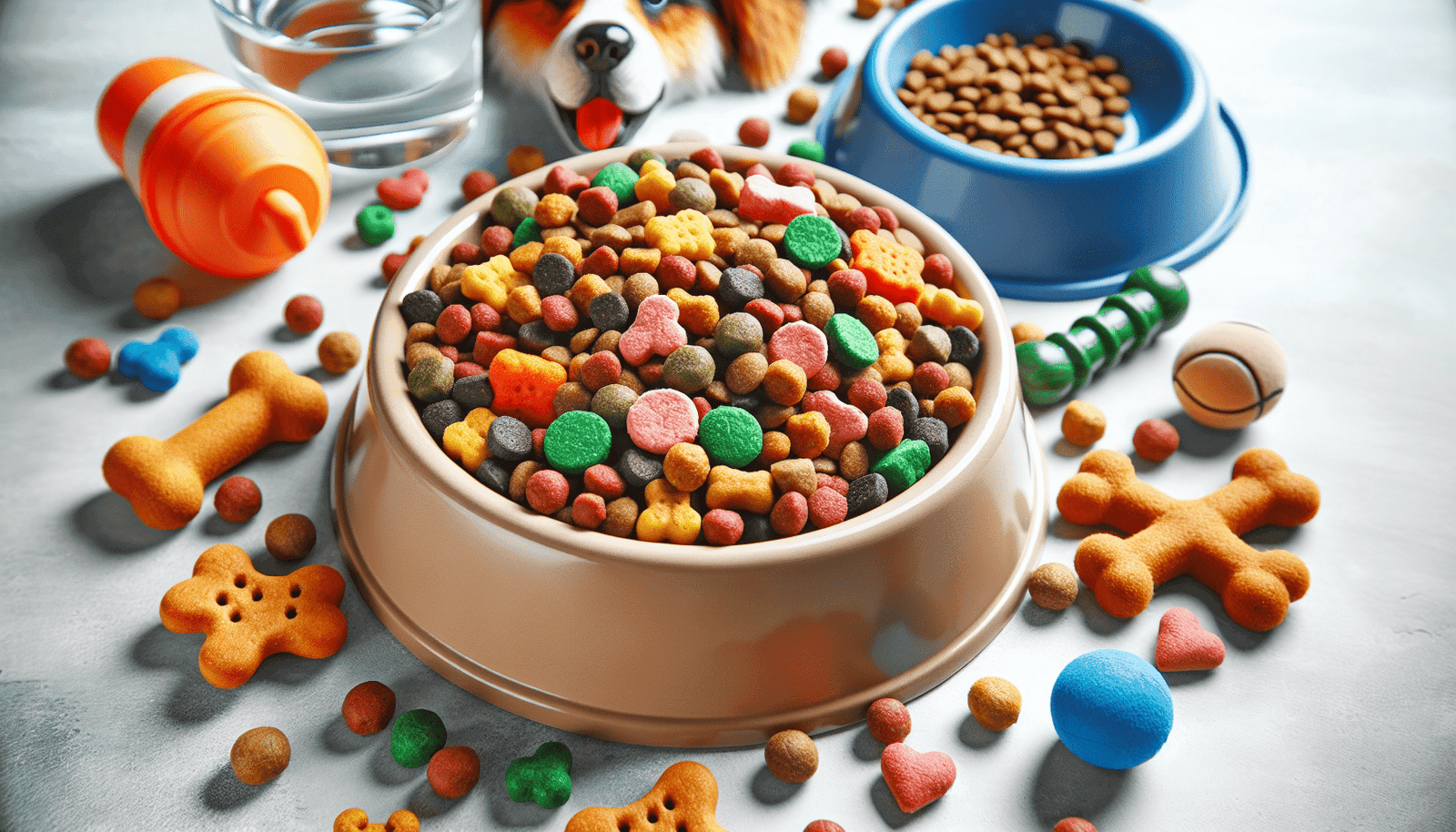Understanding the Nutritional Needs of Different Breeds of Dogs
What’s the key to keeping your dog happy and healthy? You might think it’s all about the love and playtime, but the answer often lies in what’s in their bowl. Understanding the nutritional needs of different dog breeds can be critical for maintaining their overall health and well-being. Each breed, and indeed each individual dog, has unique requirements that can affect everything from their coat to their energy levels.
The Basics of Dog Nutrition
When considering your dog’s diet, it’s essential to understand the basic nutrients involved. Dogs require a blend of specific components to thrive, including proteins, fats, carbohydrates, vitamins, minerals, and water. Each plays a distinct role in your dog’s health.
Proteins
Proteins are vital for building and repairing tissues, making them crucial for growth and development. High-quality animal proteins should be at the forefront, as these closely match what dogs would consume in the wild.
Fats
Healthy fats provide a concentrated energy source. They also support cell structure and the absorption of fat-soluble vitamins (like A, D, E, and K). Omega-3 and Omega-6 fatty acids (often found in fish oil) can help maintain healthy skin and coat, which can vary significantly depending on your dog’s breed.
Carbohydrates
While dogs don’t strictly require carbs as a primary nutrient, they can benefit from dietary fiber. This aids in digestion and can help keep your dog’s energy levels steady, particularly for active breeds.
Vitamins and Minerals
Vitamins and minerals are essential for a myriad of body processes. Each breed might have specific needs based on size, activity level, and health conditions, which means tailoring their nutrition can enhance longevity and overall well-being.
Water
Water is often overlooked but is perhaps the most crucial nutrient. It supports every body function, so ensuring your dog has constant access to fresh water is vital.

How Breed Affects Nutritional Needs
Every dog breed is unique, with varying sizes, temperaments, and activity levels, all of which affect their nutritional requirements. Factors like age, weight, activity level, and even health conditions are vital in determining the best diet for your furry friend.
Small Breeds vs. Large Breeds
Small breeds, like Chihuahuas and Yorkshire Terriers, typically have faster metabolisms than larger breeds like Great Danes and Saint Bernards. This means they need a higher calorie density in their food. Their food should be rich in proteins and fats but still balanced with other nutrients to promote healthy energy levels.
Conversely, large breeds require diets that support their significant size and help prevent developmental disorders. Foods designed for larger dogs often have added nutrients like calcium and phosphorus to support bone health.
Active Breeds vs. More Laid-Back Dogs
If you own a breed known for its energy—think Border Collies or Australian Shepherds—your dog will need a diet higher in calories to keep up with its dynamic lifestyle. Foods for active dogs often come enriched with fats and proteins to provide sustained energy.
On the other hand, more laid-back breeds may require less calorie-rich diets to keep them from gaining weight. This doesn’t mean skimping on nutrients, but rather selective feeding that caters to a less active lifestyle.
Puppy, Adult, and Senior Needs
Just like human babies, puppies have different needs than adult dogs. They need a diet packed with calories, fat, and essential nutrients for growth and development.
Adult dogs generally require a balanced diet that maintains their weight and energy levels. As dogs age, they typically need fewer calories, and diets should focus more on supporting their diminishing metabolism and addressing any medical issues that might arise.
Identifying the Right Diet for Your Dog
Selecting the perfect food can seem overwhelming, but there are ways to determine if your dog is getting the right nutrients.
Signs of a Healthy Diet
- Shiny Coat: A glossy coat can indicate a healthy diet, as it’s often attributed to sufficient fats and essential fatty acids.
- Good Energy Levels: If your dog is active and energetic, that usually reflects their nutritional needs being met.
- Ideal Weight: You should be able to feel your dog’s ribs easily, without excessive pressure.
- Firm Stool: A well-balanced diet should result in firm and consistent stools.
- Clear Eyes: Healthy eyes can be indicative of a good diet rich in vitamins and overall health.
Consulting Your Veterinarian
Determining the right diet for your dog can sometimes require professional input. Regular veterinary check-ups can provide insights based on your dog’s unique needs. If your dog has a specific health concern or is at a significant life stage transition, it’s crucial to consult with your veterinarian, who can recommend appropriate dietary changes.
Life Stages and Their Nutritional Requirements
As your dog ages, their dietary requirements will change.
Puppy Nutrition
Puppies grow rapidly and require nutrient-rich food designed explicitly for their growth stage. Look for high-quality puppy food that offers higher protein levels and adequate fat content to support their energy needs.
Adult Nutrition
Once your dog reaches adulthood, transition to a diet consistent with their activity level. This might mean switching to an adult formula that balances calories and nutrients based on their daily energy expenditure.
Senior Nutrition
Seniors often require a diet lower in calories but nutrient-dense to support joint health and organ function. Foods with glucosamine and omega fatty acids can be particularly beneficial.
Conclusion
Understanding the nutritional needs of your dog depending on their breed, age, and lifestyle is essential for their health. By focusing on high-quality food that meets these needs, you can help maintain your dog’s vitality for years to come. Always be sure to check in with your veterinarian for personalized dietary advice. Nurturing your pup starts with what you put in their bowl, setting the stage for a long, healthy life together.







